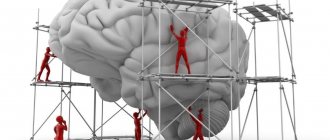The state of melancholy has many “faces” - from mild and, as a rule, temporary sadness up to serious depressive disorders, when professional psychotherapeutic help may be needed. It is important for us to prevent a melancholic mood from developing and progressing, so we need to take action in a timely manner. Moreover, this does not require extra effort if the case has not yet started.
Melancholy has a number of psychological and physical manifestations. That's why it's so important to listen to yourself. If you notice that you often begin to feel depressed, you have a depressed mood, an increased level of anxiety, life seems devoid of joy or even meaningless, you have fallen into a state of melancholy. And all this is supported by physical symptoms such as sleep disturbances, lack of appetite, apathy and weakness in the body. It is important to note that melancholia is characterized by the fact that there are no objective reasons for such complex negative experiences. In the same case, if similar symptoms are caused by real stress (loss of a loved one, relationship, job, etc.), it is better to seek advice from a psychologist. It will help you regain internal control. You can try to fight simple melancholy yourself. Fortunately, there are simple and effective tactics for this.
What is melancholy
Melancholy is a person’s mental state, characterized by a decrease in vitality, melancholy, and sadness.
The term "melancholy" was coined by Hippocrates. Melancholy characterizes a person with a weak nervous system. Since the type of temperament is an innate characteristic of a person, we can say with confidence that melancholy is characteristic of sensitive introverts. It characterizes a special type of human worldview. A melancholic person acutely experiences any life events.
Synonymous concepts for this disorder are:
- melancholic disorder without psychotic symptoms;
- severe depressive episode without psychotic symptoms;
- agitated depression;
- vital depression.
A decrease in the emotional background in the fall is not considered as a feature of temperament or a mental disorder, since natural disasters in the form of heavy rains, low skies, piercing winds and dullness cause a decrease in mood and loss of strength in any person.
The withering of nature gives rise to sad thoughts, but they should not be considered as a pathological state of the human soul.
Controlling negative thoughts
Indulging in melancholy almost always means thinking through negative thoughts and scenarios for the development of events. We recommend abandoning this destructive practice. But even when you are in a joyless state, monitor the occurrence of difficult thoughts. Try to switch to something more positive or simply distracting in a timely manner. Don't delve into yourself.
Pseudo-melancholia
ICD-10 has an unspecified mental disorder called “Senile pseudomelancholia.” This diagnosis is also called pseudodementia. This pathology can be symptomatic or functional in nature. Organic brain pathologies are not detected in psedomelancholia.
The course of the disease resembles reactive psychosis. The clinical picture of pseudomelancholia includes:
- distorted thought processes;
- speech disorders;
- distortions in motor skills.
The final diagnosis is made to the patient by a psychiatrist after an in-depth diagnosis and medical history. Pseudomelancholia can be treated with a course of antidepressants, sedatives and psychotherapy sessions.
Pseudomelancholia is a type of hysterical pathology, the distinctive feature of which is the patient’s deliberate belittlement of his intellectual abilities.
How is melancholy different from depression?
K. Jaspers highlighted the differences between melancholy and depression:
| Comparison parameter | Melancholy | Depression |
| Order of appearance of the term | The term appeared in ancient times | The term appeared relatively recently |
| Literal translation | Anger, black bile | Suppression, lowering, deepening |
| Definition | Abnormal affective disorder with independent specific symptoms similar to schizophrenia | Affective abnormal asthenic state |
| Reasons for appearance | Deep, internal | Superficial, external |
| Characteristic | A sign of a pathological change in mood | Pathological change in mood |
| Varieties | Characterizes melancholic depression | It is a general type of emotional disorder, within which endogenous depression, agitated depression, etc. are distinguished. |
| Use | The term is obsolete | The term is widely used in the modern world |
Black melancholy
Black melancholy was talked about as a disease even before the development of psychology as a science. Later it began to be used in works of art (“A Night in Lonely October” by Roger Zelaza, “A Vague Smile” by Francoise Sagan). Melancholy can still be found among the classics in their works.
Black melancholy was understood as an extreme degree of despondency and melancholy, which most often occurred due to love experiences. In a state of black melancholy, a person is ready to give up his own life.
Light sadness, melancholy and melancholy were considered simply a melancholic state; they were not attributed to black melancholy.
Signs
Melancholicism does not allow a person to enjoy life. Melancholy can be recognized by the following signs:
- the patient's motor activity decreases;
- apathy appears;
- a person’s actions become slow, and reactions to external stimuli become inhibited;
- the skin becomes too dry;
- pupils dilate;
- eating disorders are noted;
- a person loses a lot of weight in a short period of time;
- the individual cannot fall asleep, but constantly wants to sleep;
- concentration of attention decreases, the individual becomes distracted;
- there is indifference to what is happening around;
- what was previously important to a person loses all meaning;
- the individual is tormented by thoughts of his own insignificance;
- a reduced emotional background prevails;
- a person is overcome by groundless experiences;
- melancholy does not allow the patient to work productively;
- nothing makes a person happy;
- the individual focuses on negative life events;
- panic attacks are observed;
- phobias develop;
- oppressive feeling of guilt;
- a person engages in self-accusation, self-criticism, self-flagellation;
- delusions, obsessive thoughts and actions appear;
- suicidal thoughts appear.
Against the background of a melancholic disorder, a person may develop hypochondria.
Causes
The causes of melancholy are:
- genetic predisposition caused by frequent stress and negative thoughts of a woman during pregnancy;
- melancholic type of temperament;
- frequent criticism from parents, excessive demands from parents for the child;
- overprotection;
- unfavorable climate in the school community, low socio-psychological status of the child in the peer group;
- lack of opportunities to meet the needs for self-development and self-realization;
- inferiority complex;
- a series of failures in life;
- fatalistic personality attitudes;
- unrequited love;
- loss of a close relative;
- low self-esteem;
- a person reaching old age;
- skepticism;
- gambling addiction;
- drug and alcohol use.
Causes of melancholy
If a person is melancholic, this may be due to various reasons for a depressed mood. It is still not clear what exactly provokes melancholy, since any phenomenon can serve as a trigger:
- Mental experiences, strong emotional outbursts.
- Predisposition to depression.
- Mental disorders (for example, schizophrenia).
- Severe and long-term illness.
- Features of age. Older people often suffer from melancholy because they are sad about lost youth. Teenagers are also susceptible to this condition due to their fragile psyche, which still perceives any problem as a personal tragedy.
- Obsessive states, fears, disorders, phobias.
- Low self-esteem.
- Nervous breakdowns, emotional distress.
- Different types of addiction (alcohol, gaming, drug addiction).
- Overvoltage.
Specialists in perinatal psychology are conducting research on the hereditary tendency to melancholy.
For example, that a mother prone to melancholy will give birth to the same child. The influence of the mother's emotional state during pregnancy on the character of the unborn child is also being studied. This is a fairly new direction, so there is no clearly substantiated data yet.
The experiment was also carried out on animals. Pregnant rats were constantly forced to experience stress and tension. They had the same restless offspring. From the article - Ryzhavsky B. Ya., Sokolova T. V. The influence of emotional stress of pregnant rats on the indicators of brain development of their 21-day-old offspring // Far Eastern Medical Journal. 2002. No. 4.
Additionally, watch an interesting video about highly sensitive people, how they cultivate melancholic moods.
Melancholic woman
The melancholic personality type is more common in women. Representatives of the fair sex with this type of temperament are characterized by the following features:
- pessimistic outlook on life;
- expressionless facial expressions;
- quiet voice;
- weak social activity;
- increased anxiety;
- suspiciousness;
- touchiness;
- selectivity in communication;
- wary of innovation;
- suspiciousness;
- jealousy.
Such a lady avoids noisy parties because she feels uncomfortable there. When friends suggest she go somewhere, she hesitates for a long time.
To feel safe, a melancholic woman needs a strong man. It must be said that girls with a melancholic type of temperament attract men with their fragility, tenderness, and romance.
Melancholic man
A melancholic man is a romantic who knows how to beautifully look after a lady. He is completely uncharacteristic of brutality, rudeness and aggression. He strives to give others care, attention and empathy, but becomes upset if he does not receive similar emotional manifestations from them.
The main values of a melancholic man are family and children.
A melancholic man tends to dwell on his own mistakes and failures, so he rarely takes initiative in any matter. But at the same time, he will never refuse to help someone in need.
Do you consider yourself melancholic?
Yes
100%
No
0%
Voted: 4
Melancholic child
A child with a melancholic type of temperament has the following characteristics:
- perseverance;
- obedience;
- gullibility;
- vulnerability, tearfulness;
- increased anxiety, indecisiveness;
- self-doubt, low self-esteem;
- touchiness;
- infantilism;
- the desire to avoid responsibility for one’s actions and actions;
- difficulties in switching attention, in the transition from one type of activity to another;
- slow pace of mental processes;
- impressionability;
- envy;
- stubbornness;
- tendency to emotional blackmail;
- dependence on other people's opinions;
- in relationships with peers they are followers;
- long and painful experience of failures and quarrels with comrades;
- attachment to people, things, toys;
- need for emotional stimulation and encouragement from parents.
Melancholic people at any age need a strong emotional connection with their mother.
To facilitate the socialization of a melancholic child, parents should develop his critical thinking and emotional self-control skills, teach him to understand people and say “no.”
Pros and cons of the condition
Quality has a number of pros and cons:
Advantages and disadvantages
The ability to feel subtly, empathize, and show mercy.
The ability to see beauty, to be a subtle connoisseur of beauty.
The ability to anticipate difficulties in advance. A melancholic person, due to his own suspiciousness, thinks about the worst and works through several options for action.
Able to build long-term relationships.
Do not give in to momentary impulses.
They get tired quickly and need more time to rest.
They get tired of intense communication, fuss, people around.
They show a tendency to anxiety, they are afraid that something bad will happen.
They often whine, despair, and are not averse to complaining about their evil fate.
People are more susceptible to stress than others and take longer to recover from it.
Melancholic in relationships
Social interaction for a melancholic person is complicated by the fact that he expects reproaches and criticism from his communication partner. Such attitudes do not allow him to correctly interpret the facial expressions, gestures and phrases of his interlocutor.
A melancholic person doubts everything that is told to him. He is wary of praise and compliments addressed to himself. Low self-esteem does not allow him to believe that he really deserves respect and admiration. A typical reaction to difficulties and obstacles on the way to a goal in a melancholic person is tears. Hysterics prevent an individual from focusing on the current situation and constructively assessing it.
In a relationship, a melancholic person values precisely the feelings and emotions that arise here and now. People with this type of temperament do not like to make plans for the future or sort things out.
In order for the union with a melancholic person to be strong, it is necessary to say words of love to him every day, give him gifts for no reason and sweet surprises.
Mention of melancholy in creativity
A melancholic mood and state often accompanies creativity. This is especially easy to see in works of literature:
- Francoise Sagan "Hello, sadness." A light and slightly naive narrative from the perspective of the girl Cecile and her summer holidays.
- Colin McCullough "The Thorn Birds" A classic family saga that can also be called a full-fledged love story.
- Emily Bronte "Wuthering Heights" As always, the plot is based on love, and it seems to the main characters that it can only be unhappy.
- Jonathan Safran Feuer "Extremely Loud and Incredibly Close." A powerful and tragic book that book lovers recommend reading exclusively in paper form.
- Ian McEwan "Atonement". A book in the genre of a postmodern novel, in which truth and fiction, euphoria and melancholy are intertwined.
- Kazuo Ishiguro "Don't Let Me Go" The main difference between the book and other similar books is its genre. This is fantasy, but not about robots, aliens or elves with bows and swords.
Melancholy found a response in painting. For example, there is a cycle of engravings by Durer with the same name.
In musical creativity, there are notes of melancholy in the works of Glinka, Tchaikovsky, and Rachmaninoff. The video contains a selection of melancholic music.
How to get rid of melancholy
To stop perceiving the world in gray colors, a person needs:
- analyze every situation that plunges you into despondency, identify the causes of such situations and eliminate them;
- keep the apartment clean and regularly ventilate the room;
- grow indoor plants;
- fill the apartment with cute little things that create comfort;
- systematically exercise, do morning exercises;
- maintain a daily routine;
- plan your day, week.
To make the process of getting rid of melancholy go faster, it is recommended to contact a clinical psychologist or psychiatrist. A specialist can prescribe balneotherapy, massage, or aromatherapy to a person.
In the fight against melancholy, approaches such as psychotherapy and cognitive behavioral therapy are effective. In especially severe cases, the patient is hospitalized.
Melancholy mood
Melancholy is difficult to predict and fight. Usually a melancholic mood arises on its own. It is customary to fight melancholy, but a number of psychologists, including us, advise accepting your feelings, including melancholy, living them, looking for the root cause.
How to live the feeling correctly and environmentally, how to work with it, see the last section of the article.
A state of melancholy can be very productive and beneficial. If you live in harmony with your melancholy, you can learn to throw out your own negative feelings and give vent to your emotions. It’s normal to cry a little or complain to a loved one about being in a bad mood.
How to learn to get the most out of your melancholy and get along with it:
- Allow yourself to be sad and not leave the state of melancholy for as long as the person himself considers necessary.
- Do not forcefully drive away melancholy, do not put on a false smile.
- Perhaps a person just needs to recharge and be alone. For example, watch a romantic film or listen to calm music, then the melancholy will go away.
And if a person is also engaged in creativity, then in a state of melancholy he should sit down with a canvas, pen or musical instrument. Most of the works of art that even the most unsentimental people cry over and admire, were created in a state of melancholy.
Do you often want to do creative work in a state of melancholy? Write in the comments, did you create something cool in such impulses?










